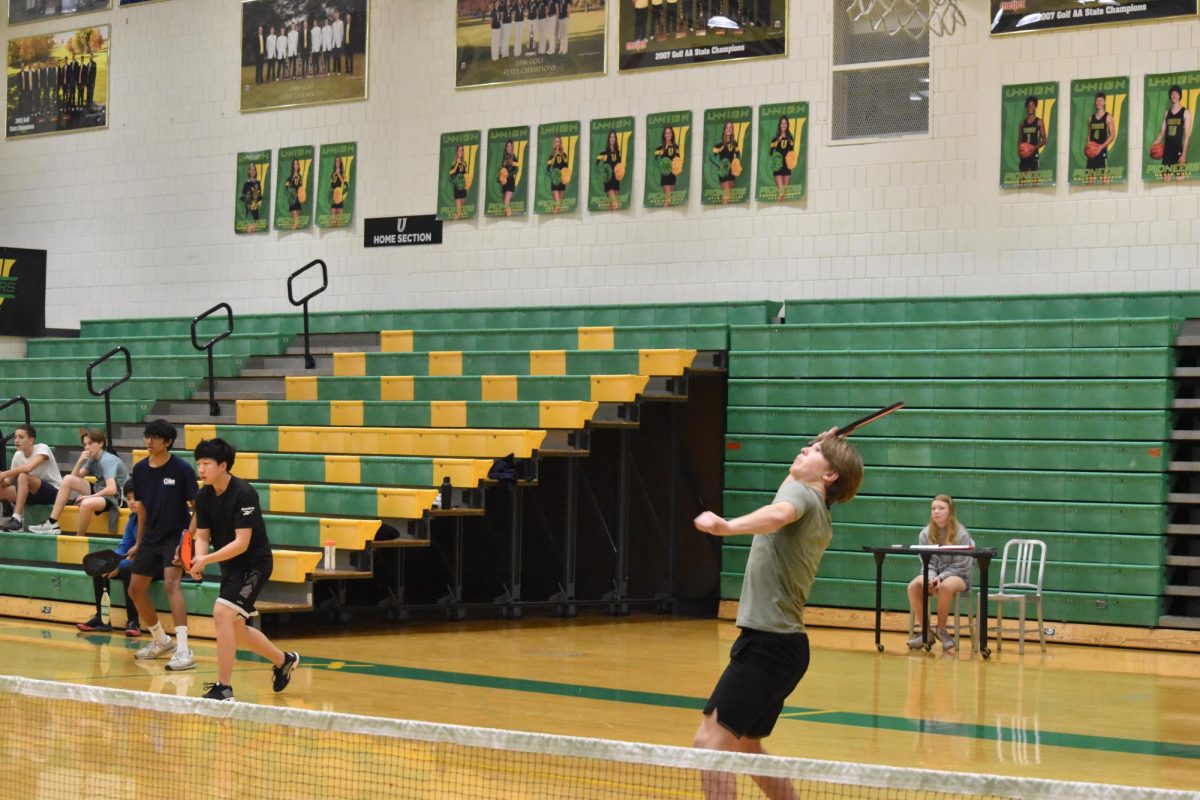Investing is a way most people use to help grow their money to achieve later benefits. Stocks are one of the most common ways to get into investing. U-High has a class that covers an investing unit to help educate students on strategies, as well as the risks and benefits.
Andrew McDowell has been the consumer economics teacher at U-High for the past ten years. Part of his investing curriculum is playing a stock market game in the class.
“A huge part of investing is the stock market,” McDowell said. “Stocks are the most common and popular form of investment; the stock market game is a way to get real-life feedback on the stock market in real-time.”
Students are able to get a realistic experience with the stock market through the game without having to invest real money. At the beginning of the game, everyone has $100,000 in play money to invest in a variety of businesses.
One rule McDowell has in his class is that you’re not allowed to invest more than $10,000 into one business. Most of the students follow this rule, however McDowell has a handful of students who decided to break this rule. One such student is senior Andrew Checchi who said he folded to peer pressure.
“The person next to me invested more than $10,000 into a stock and I was jealous of the amount of profit he gained so I decided to break the rule.[/pullquote],” Checchi said. “It was super cool to see the amount of money you could gain from putting more than $10,000 in. Also, if a stock doesn’t do what you want it to do and you invest more than $10,000, you should expect to lose a large amount of money.”
Even though success might follow when breaking the rule McDowell set in place, it doesn’t teach the other ways of investing. Elijah Jacob, a junior in McDowell’s class, found major success in following the rule.
“I did not break the rule,” Jacob said. “It is a good investment strategy because by diversifying your portfolio you feel the volatility of the stock market less.”
Even though students took different approaches to the game, they all were able to learn a variety of strategies when it comes to investing. Also, the competition between students made it more exciting to those who were playing.
“I think my knowledge on the topic grew because the stock market game was something I actually enjoyed,” junior Connor Hartman said. “I figured out different strategies on my own and applied things we talked about in class.”
By the end of the unit, Jacob’s earnings and strategies had earned him first place.
The stock market game will continue to be in McDowell’s Consumer Economics class for years to come.
“It’s a favorite activity to do in Consumer Economics classes,” McDowell said. “It’s a good and safe way to learn about the stock market.”



